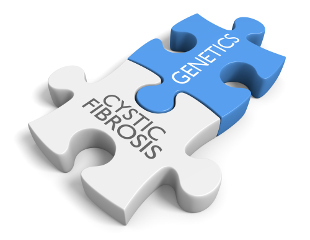
Cystic fibrosis (CF) is caused by pathogenic variants in the CF transmembrane conductance regulator (CFTR) gene. More than 2,000 variants have been detected in the CFTR gene. Because most are extremely rare and many have unknown significance, the American College of Medical Genetics and Genomics (ACMG) has recommended screening for at least the 23 most common pathogenic CFTR variants. ARUP’s Cystic Fibrosis (CFTR) Expanded Variant Panel includes the 23 pathogenic CF variants recommended for carrier screening, as well as many more.
Cystic Fibrosis Testing Details
ARUP’s Cystic Fibrosis (CFTR) Expanded Variant Panel tests for known severe or moderately severe variants that cause cystic fibrosis and is appropriate as a carrier screening test for individuals or couples who are pregnant or planning a pregnancy, and as a first-tier diagnostic test for individuals affected with cystic fibrosis.
The panel uses CFTR gene sequencing to detect mildly pathogenic variants associated with CFTR-related disorders, such as pancreatitis or congenital bilateral absence of the vas deferens (CBAVD), and is an appropriate first-tier test for CF-related disorders.
The CF cis-trans test for R117H and 5T variants will be performed as an automatic cost-free reflex test when ordered as part of the panel. The panel detects the presence of the mild 5T variant, which will be reported when information provided to ARUP indicates that the patient is symptomatic. Separate testing for the 5T variant is not necessary.
This mild variant will not be reported when the patient is asymptomatic, such as during routine obstetric carrier screening, as recommended by the ACMG. This variant should not be reported for carrier screening because it is not CF causing and would lead to unnecessary anxiety, as well as the testing of reproductive partners and pregnancies.
















